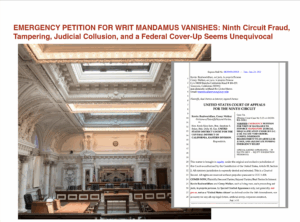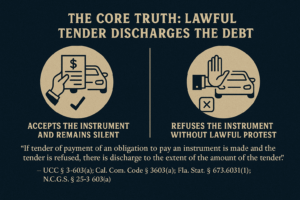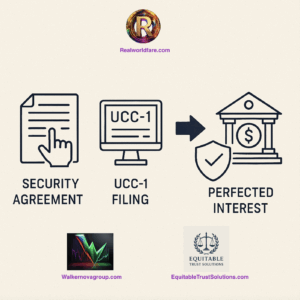Private Citizen – is someone who is private and not governed by any de facto corporation like the U.S. Corporation or it’s subsidiaries like STATE OF CALIFORNIA, STATE OF TEXAS, etc.
American National – a private citizen of anywhere in America; North or South America, anywhere whatsoever — can be on Indian territory/Tribal territory in Canada or Mexico; or you can be a resident of your city, located at one of the sovereign republic states, without interfacing jurisdiction in the Corporation “UNITED STATES.”
State Citizen – an American National who is not an Indian, not from Canada, not from Mexico or South America or Caribbean. A state citizen is one who is domiciled in the republic common law of California, Texas, New York, etc..
Non-Resident Alien [with respect to the UNITED STATES (corporation)] – means you are residing in the republic, and in the view of the UNITED STATES (corporation), you are not residing in their jurisdiction, so they have no territorial jurisdiction; by being an alien (foreigner), they also do not have in personum jurisdiction.
Secured Party/Secured Creditor (“SPC” or “SPSC”) – someone who was a U.S. Citizen and has a U.S. birth certificate (banknote and prima face evidence of a pledge and trust) or Certificate of Citizenship (if born abroad), or permanent resident who has a green card and social security number; who has voided and canceled the invisible, unknown, and/or fraudulent contracts creating the “U.S. Citizen“/Resident/Franchise/Artificial Entity/Trust, and taken control of their Birth Certificate, Estate, their LEGAL NAME trust/Franchise/Artificial Entity; and can operate freely to discharge debts via the Treasury, via administrative process, or via court actions at will. That is given you understand Law and that you can only “pay” with gold or silver not debt notes aka Dollars/Federal Reserve NOTES/portable bonds, or bonds, or bills of exchange/exchange contracts, or checks, or promissory notes. A Secured Party/Secured Creditor is a specific type of man or woman which at one point in time, perhaps for much of his or her life, has mistakenly thought they were themselves (not their artificial entity/ens legis/trust/franchise) were a “U.S. Citizen” or Permanent Resident, due to misinformation, propaganda, and improper disclosure,; but after discovering who they really are and understanding what citizenship really means, and the fraud and scam that the government is really a private corporation running a voluntary society, has preserved their rights and claim their sovereign status and unalienable rights, through educating themselves and executing various paperwork processes.
United States citizen – The fourteenth amendment creates and defines citizenship of the “United States” (corporation: like Subway).
” The fourteenth amendment creates and defines citizenship of the United States. It had long been contended, and had been held by many learned authorities, and had never been judicially decided to the contrary, that there was no such thing as a citizen of the United States, except as that condition arose from citizenship of some state. No mode existed, it was said, of obtaining a citizenship of the United States, except by first becoming a citizen of some state. This question is now at rest. The fourteenth amendment defines and declares who shall be citizens of the United States, to wit, “all persons born or naturalized in the United States, and subject to the jurisdiction thereof.” The latter qualification was intended to exclude the children of foreign representatives and the like. With this qualification, every person born in the United States or naturalized is declared to be a citizen of the United States and of the state wherein he resides.
After creating and defining citizenship of the United States, the fourteenth amendment provides, that “no state shall make or enforce any law which shall abridge the privileges or immunities of citizens of the United States.” This clause is intended to be a protection, not to all our rights, but to our rights as citizens of the United States only; that is to rights existing or belonging to that condition or capacity. The expression, citizen of a state, used in the previous paragraph, is carefully omitted here. In article 4. § 2, subd. 1. of the constitution of the United States, it had been already provided, that “the citizens of each state shall be entitled to all privileges and immunities of citizens in the several states.” The rights of citizens of the states and of citizens of the United States are each guarded by these different provisions. That these rights are separate and distinct, was held in the Slaughterhouse Cases, 16 “Wall. [83 U. S.] 36, recently decided by the supreme court. The rights of citizens of the state, as such, are not under consideration in the fourteenth amendment. They stand as they did before the adoption of the fourteenth amendment, and are fully guaranteed by other provisions. The rights of citizens of the states have been the subject of judicial decision on more than one occasion. “-[UNITED STATES V. ANTHONY (1873)]
See: The Constitution: Gold and Silver is The Only Real Money and Everything else is Credit




